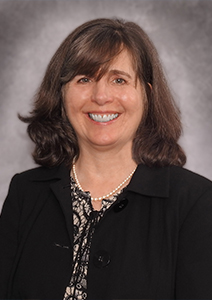Food insecurity – the state of being without reliable access to adequate amounts of affordable, nutritious food – may be linked to an increased risk of high blood pressure and diabetes for stroke victims, possibly putting them at greater risk for a second stroke, a new study has found.
Researchers at Cook County Health found that among patients with recent stroke and food insecurity, 84.6 percent had high blood pressure, or hypertension. Fifty-eight percent of these patients had diabetes, and 16.7 percent had a previous stroke.
Those were higher rates than among stroke survivors not labelled food insecure (67.3 percent had hypertension; 28.8 percent had diabetes; and 21.2 percent had a previous stroke).
Food insecurity is gaining recognition as a risk factor for poorly controlled hypertension and diabetes, both of which can potentially lead to another stroke for stroke survivors.
Dr. Lakshmi Warrior, lead researcher of the study and an Attending Neurologist at John H. Stroger, Jr. Hospital, said the findings suggest that medical treatment of hypertension and diabetes may not be enough for stroke patients.
“There should be consideration for food insecurity screening in high-risk populations, as food insecurity can complicate the management of diet-related diseases such as hypertension and diabetes,” Dr. Warrior said. “For patients with food insecurity, a multi-disciplinary approach using case and social workers in addition to medical management should be considered.”
The research, which will be presented at the American Stroke Association’s International Stroke Conference 2017 on Feb. 23, is based on data from a total of 216 patients who came to CCH’ outpatient neurology clinic. Using a standardized two-question screening tool and reviewing electronic medical records, researchers identified 22.7 percent, or about 1 in 5 patients, as being food insecure.
CCH’ John H. Stroger, Jr. Hospital Stroke Program takes a multidisciplinary approach to treating patients. All stroke patients are screened by a social worker for food insecurity, depression, substance/tobacco use and need for
transportation. Patients who screen positive for food insecurity are then given information about food resources including local food pantries and how to apply for federal programs such as SNAP.
CCH also has a program that connects food-insecure patients with fresh produce through a partnership with the Greater Chicago Food Depository, Chicago’s food bank. The depository has FRESH Trucks that are refrigerated vehicles stocked with fresh fruits and vegetables. To date, CCH’ partnership with the Food Depository has resulted in 32 visits to 9 CCHH community health centers, resulting in more than 12,000 people obtaining no-cost healthy and seasonal produce.


